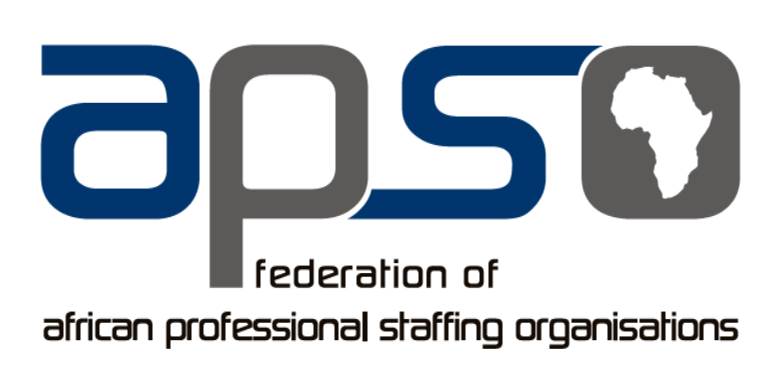Given the sharp spread of the virus in certain locations, we need to rapidly move to a lockdown of all non-essential and critical business continuity services- however, it is important to peruse the below.
LOCKDOWN
Essential and critical business continuity services will need to remain open to keep our people healthy, safe, and secure under these extraordinary conditions. We provide the following guidelines as to what businesses need to remain open. We ask all Clients to take this seriously and to help us respond as effectively as possible to contain and minimise the impact of (COVID-19).
CRITICAL BUSINESS CONTINUITY SERVICES IN THE EVENT DURING COVID-19 RESPONSE
During the course of the lockdown, the following services will need to be maintained:
This sets out a list of sectors, services, and functions required to continue during a lockdown as part of the (COVID19) responses. This is not intended to be authoritative or exhaustive but provide guidance.
These broad areas are required to continue:
- Security and resilience of basic infrastructure
- Business continuity for critical support services for the health sector
- Business continuity for public health and safety, including food security.
In all cases, businesses that need to provide critical continuity services must apply the necessary strategies to limit disease spread, protect staff and others that they will have to interact with.
|
Business Sectors |
Dependencies |
|
| Network Infrastructure | ||
| Coal Mines and Power Stations | ||
| Gas supplies | ||
| Fuel supplies | Petrol Stations and related forecourts. | |
| Renewable energy |
|
|
| Water and wastewater | ||
| Law enforcement | ||
| Public Works | ||
| Sanitation | ||
| Refuse removal | ||
| Defence, Safety and Security | Defence
Design, production, delivery and maintenance of military weapons and software systems, subsystems and component or parts manufacture. |
|
| Private Security Services
Staff, systems, and infrastructure. |
||
| IT Systems + Telecommunications | ||
| Datacentres (heavily reliant on stable electricity supply). | Staff and technicians to keep critical systems up. | |
| Fibre Optic infrastructure (relaxation of the laws that slows down the deployment of infrastructure). | Access to spares and travel to customer sites. | |
| Towers and antennae (relaxation of laws that slow down the deployment of infrastructure). | SARS to clear emergency spares via other countries. | |
| Spectrum (making any and all band available immediately).
|
||
| Approve the use of millimetre wave technology and other rural connectivity methods such as TV White Space. | ||
| Batteries (they are being stolen as fast as they are put in – find a collaboration with SANDF if possible, to protect them). | ||
| Devices (removing import duties on phones, tablets, laptops and other communications devices). | ||
| CRITICAL: Closer collaboration with Eskom on load shedding schedule, if possible, not to load shed rings with datacentres at all keep it under 2 (Two) hours. Need upfront schedule so providers can move batteries around to keep networks running. | ||
| Medical and Health | ||
| Hospitals | Electricity – NO LOADSHEDDING | |
| Devices and Equipment | Cleaning | |
| Pharmaceuticals | Food | |
| Funders | Transport | |
| Doctors, nurses, technicians, operating assistants. | Laundry | |
| Waste Disposal | ||
| Food and Agriculture | ||
| Agri-Food Value Chain | Supply of inputs for production (diesel, fertilizer, (note, emerging problems here already) – Agri-chemicals, seed, ag-equipment, electricity, water, labour, etc.).
Much of this is imported, especially the first mentioned inputs – PORTS NEED TO BE KEPT OPEN. |
|
| Logistics from farmgate to storage to processing plants/places, as well as exports/imports, including road, rail and port services must be fully maintained | ||
| Critical factors of financial services, energy security (electricity and fuel supply), and logistics services (road, rail and ports, with the latter being a special concern both from an import and export consideration). | ||
| Critical to this sector is critical labour availability, continuous electricity supply, water supply, packaging supply, and logistics for delivery to wholesalers- retailers- ports (Reefer container availability currently still a significant constraint as most still locked up in Chinese ports). | ||
| Retail and Consumer Goods | ||
| Consumer Goods:
A temporary declaration that the retail and manufacturing industry in the consumer goods sector be declared an essential service and be allowed to continue operating during the lockdown.
Food Retailers Food outlets, raw material suppliers, farmers, supply chain, logistics, transport, packaging. This includes not only food but also personal hygiene and cleaning goods.
Food and Goods to be declared as essential items: Toilet paper, hand sanitizer, facial masks, disinfectant cleaners, surgical gloves, surgical masks, disinfectant wipes, antiseptic liquids, all-purpose cleaners, baby formula, disposable nappies, bleach, cooking oils, wheat flour, rice, maize meal, pasta, sugar, long-life milk, canned and frozen vegetables, meat chicken and fish. Fresh meat chicken and fish. Bottled water and other beverages.
Other Retail Goods: Bedding, linen, and emergency clothing for hospitals, health workers and those taking care of the sick. |
Product manufacturers (Food and Non-food essential Items)
General network providers to ensure the availability of internet access for the purpose of communication and work from home capability.
Logistics enabled by petrol stations.
IT Tech services to support essential services systems. There is a high dependency on systems to ensure the flow of goods and services and to enable work from home capability.
Security Services to support essential services systems. |
|
| Forestry and Sawmills | ||
|
|
|
| Call Centres and Business Process Services | ||
| Life and Health-Related | Government
Private Sector
|
|
| Energy-Related Services
|
Government
Private Sector
|
|
| Food and Water Supplies | Government
Private Sector
|
|
| Enable continuation of economic and social activities | Government
Private Sector
|
|
| Transactional Call Lines | Government
Private Sector
|
|
| Communication Services | Government
Private Sector
|
|
| Law and Order Call Centre Services | Government
Private Sector
|
|
| Finance and Insurance | ||
| Keep financial markets open | ||
| Third-party service providers | ||
| Financial services (middle office, trading, back-office and insurance claim offices) | ||
| Short term insurance to cover industry | ||
| Life cover, Burial and funeral funds. | ||
| Communications to Public | ||
| Screen | ||
| Print and Broadcast | ||
| Radio | ||
| Tourism and Hospitality | ||
| Restaurants – delivery only | ||
| Delivery Services | ||
| Hotels for isolation, airline crews, and (COVID- 19) related business travel. | ||
| Car rentals for critical continuity services only. | ||
| General | ||
| Board and Management | ||
| Operations Centres | ||
| Repair of Critical Infrastructure | ||
We encourage people to continue to remain productive and work from home (where required). However, this must be on the basis that it does not require contact with people not residing in the home, and it does not interfere in any manner with the (COVID19) response.

A detailed list will be made available in due course as we further await Governments’ response.
COMPRESSED WORK WEEK
Compressed work week can be implemented by individual Agreement with Temporary and or Contract Employees (Assignees) and perm. Employees as per above within the provisions of the following:

COVID-19 CHECKLIST










